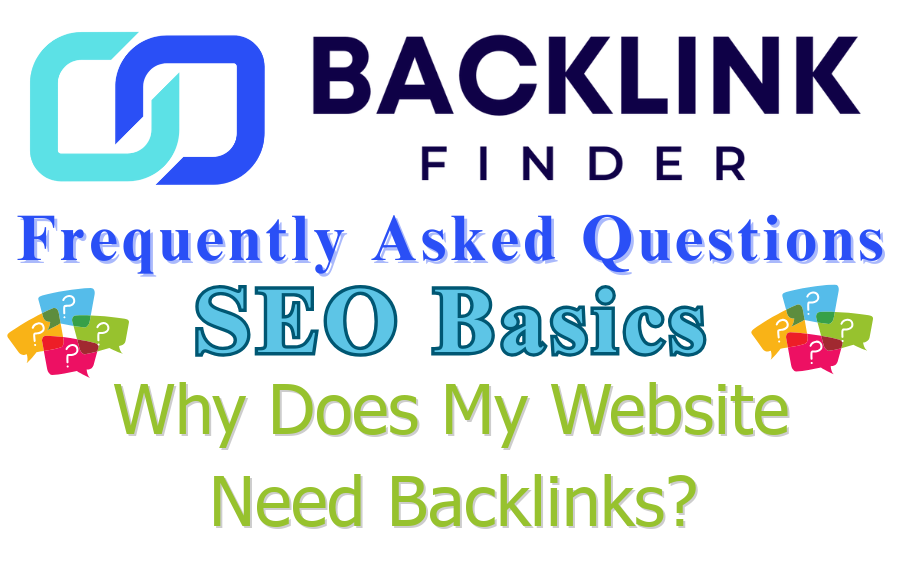Why Does My Website Need Backlinks?

Backlinks are a vital component of Search Engine Optimization (SEO), often determining whether your website thrives or fades in search results. But why exactly does your website need backlinks? This guide explores the critical role backlinks play in boosting rankings, driving traffic, and building authority. Designed for beginners, it breaks down the benefits and strategies to leverage backlinks effectively, helping your site stand out in a crowded digital landscape.
What Are Backlinks?
Backlinks, or inbound links, are hyperlinks from other websites pointing to yours. Think of them as votes of confidence: when a reputable site links to you, it signals to search engines like Google that your content is valuable and trustworthy. For example, a blog linking to your SEO guide suggests your site is a credible resource.
Backlinks come in types:
- Dofollow Backlinks: Pass SEO value, directly boosting rankings (e.g., a guest post link).
- Nofollow Backlinks: Don’t pass direct SEO value but drive traffic and exposure (e.g., a social media mention).
- Editorial Backlinks: Earned naturally from high-authority sites, highly valuable.
Quality backlinks from relevant, trusted sites carry more weight than numerous low-quality ones.
Why Backlinks Matter for Your Website
Backlinks are essential for several reasons, each enhancing your site’s SEO performance:
- Improve Search Rankings: Search engines view backlinks as endorsements, ranking sites with strong backlinks higher for relevant queries.
- Drive Organic Traffic: Backlinks from active sites bring visitors directly, increasing your reach without ads.
- Build Authority: Links from respected sources establish your site as a go-to in your niche, fostering trust.
- Enhance Indexing: Backlinks help search engine crawlers discover your site faster, improving indexability.
- Boost Referral Traffic: Visitors clicking backlinks from blogs or forums explore your content, often with high engagement.
Without backlinks, even great content may struggle to rank, as search engines lack signals of its credibility.
How Backlinks Impact SEO
Backlinks influence SEO through:
- Domain Authority: Sites with quality backlinks gain higher authority scores, signaling trustworthiness to Google.
- Relevance: Backlinks from niche-related sites (e.g., an SEO blog linking to your guide) strengthen topical authority.
- Link Diversity: A varied backlink profile—blogs, directories, forums—shows natural growth, favored by algorithms.
A strong backlink profile can elevate your site’s rankings, but it requires effort. Tools like Backlink Finder, offering access to 400,000+ marketplace listings, simplify finding guest post opportunities to secure high-quality backlinks.
Understanding Your Backlink Profile
Your backlink profile—the collection of all links pointing to your site—is a key SEO metric. A diverse, authoritative profile signals health, while spammy links can harm rankings. To analyze it for free, services like Servya provide a cost-effective way to download an up-to-date backlink list, helping you assess quality and refine your strategy.
Free Ways to Build Backlinks
You can start building backlinks without spending money:
- Guest Posting: Write articles for niche blogs, including a link to your site. Search “your niche + guest post” to find opportunities.
- Forum Participation: Join communities like Reddit or niche forums, sharing insights and linking to your content when relevant.
- Content Creation: Publish shareable content (e.g., guides, infographics) on free platforms like Medium, encouraging natural links.
- Directory Submissions: List your site in reputable directories like Yelp (for local businesses) or industry-specific hubs.
- Social Media: Share your content on Twitter or LinkedIn, prompting others to link back if it resonates.
These methods take time but deliver lasting SEO benefits. For example, a guest post secured through Backlink Finder’s marketplace can link to your homepage, boosting both traffic and authority.
Backlinks are still a top ranking factor. Focus on quality, not quantity—relevant, authoritative links move the needle. Build them naturally through great content and outreach. https://t.co/QpXz7mW9kL— Cyrus Shepard (@cyrus_shepard) November 17, 2021
Common Backlink Myths
Clarifying misconceptions ensures smarter strategies:
- Myth: More Backlinks Always Win: Quality trumps quantity; one link from a high-authority site outweighs dozens from spammy ones.
- Myth: Backlinks Are Instant: SEO benefits take weeks or months as search engines evaluate links.
- Myth: Nofollow Links Are Useless: They drive traffic and exposure, indirectly aiding SEO.
As Cyrus Shepard notes, prioritizing relevant, authoritative backlinks over sheer volume is key to success.
Further Reading
- Moz: The Importance of Backlinks
- Ahrefs: What Are Backlinks and Why They Matter
- Search Engine Land: Guide to Link Building

